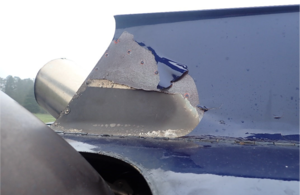CMA provisionally finds lighting firm illegally banned discounts
The Competition and Markets Authority (CMA) has issued a Statement of Objections to Dar Lighting Limited (‘Dar’), which supplies domestic lighting products.
The CMA’s provisional conclusion is that Dar restricted retailers’ freedom to set their own prices online between 2017 and 2019, requiring them to sell at – or above – a minimum price and so preventing them from offering discounts.
This kind of practice, known as resale price maintenance (RPM), is illegal and results in shoppers paying more for products.
This is the second time in recent years that the CMA has investigated a company in the lighting industry in relation to RPM.
Ann Pope, Senior Director of Antitrust at the CMA, said:
When online retailers are free to set their own prices, they compete with each other to offer shoppers the best deal. This competition drives down prices, as well as spurring improvement in choice and quality of service.
We take allegations of online resale price maintenance seriously and companies should not feel exempt from CMA investigation just because we have taken action against a company within their industry recently.
The CMA’s findings are provisional and no final decision has been made about whether there has been a breach of competition law. The CMA will now carefully consider representations from the company before reaching a final decision.
In recent years, the CMA has issued millions of pounds worth of fines to firms in the lighting and musical instrument sectors for preventing retailers from offering discounts online.
For businesses wanting to know more about RPM, the CMA has published guidance to help suppliers and retailers across all sectors, with information about what to do if they are, or may have been, involved in RPM or similar practices. Businesses can also watch the CMA’s short film that explains what RPM looks like in practice.
What is resale price maintenance?
- The Chapter I prohibition of the Competition Act 1998 prohibits anti-competitive agreements, concerted practices and decisions by associations of undertakings which have as their object or effect the prevention, restriction or distortion of competition within the UK or a part of it and which may affect trade within the UK or a part of it.
- The Statement of Objections is addressed to Dar Lighting Limited, which the CMA provisionally considers was directly involved in the alleged infringements.
- The CMA has not addressed the Statement of Objections to any retailer in this case. This is because the CMA has applied Rule 5(3) of its 1998 Rules, according to which it may address a proposed infringement decision to fewer than all the persons who are or were party to the relevant agreement/s.
- Since 2019, the CMA has fined five musical instrument companies for online RPM in the following sectors: Digital pianos, digital keyboards and guitars; Synthesizers and hi-tech equipment; Electronic drum sector; guitar sector; and digital pianos and digital keyboards sector.
- The CMA has also fined three companies in other sectors for RPM: one in the light fittings sector; one in the bathroom fittings sector; and one in the commercial refrigeration sector.
- Following the musical instrument decisions (see above), to help the musical instruments industry learn the lessons from the CMA’s investigations the CMA published an open letter to suppliers and retailers in the musical instruments sector and case studies relating to its Casio investigation, Korg investigation and Yamaha/GAK investigation. It also issued a large number of warning letters, which signpost to guidance for businesses on resale price maintenance and encourage musical instrument suppliers, and retailers, to review their business practices to ensure they are complying with competition law. In addition, building on its extensive efforts to monitor and address suspected RPM, the CMA launched its own in-house price monitoring tool aimed at deterring companies from entering into agreements restricting online discounting. Find out more in our blog.
- For media queries, contact the CMA press team on 020 3738 6460 or press@cma.gov.uk.

